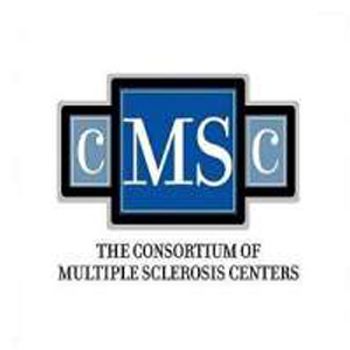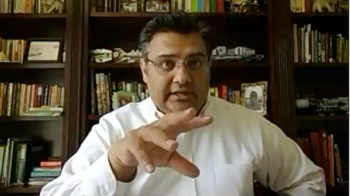
The co-director of the Neurological Clinical Research Institute at Massachusetts General Hospital discussed how the investigational agent might fit into the landscape of amyotrophic lateral sclerosis treatment as it progresses through the pipeline.

The co-director of the Neurological Clinical Research Institute at Massachusetts General Hospital discussed how the investigational agent might fit into the landscape of amyotrophic lateral sclerosis treatment as it progresses through the pipeline.

The data suggests that a planned multiple ascending dose study and a phase 2a proof-of-concept study in patients with mild cognitive impairment could be on the way.

The program will include video presentations of the Platform Abstracts covering the latest MS research as well as a CMSC Business Meeting with the winners of the International Journal of MS named.

Results presented virtually at AAIC 2020 support a larger, multi-center, phase 3 study to determine the safety and efficacy of nilotinib in patients with Alzheimer disease.

Compared to treatment with lisinopril, those treated with the angiotensin receptor blocker candesartan showed improvements on the Trial Making Test part A and B and Hopkins Verbal Learning Test-Revised delayed recall.

The director of the Center for Neurological Restoration at Cleveland Clinic details the direction of clinical research for Parkinson disease and efforts that are being made to alleviate quality of life issues for those with the disease.

Additional data presented at AAIC 2020 shows the clinical benefit pimavanserin has on dementia-related psychosis while the agent awaits a PDUFA date of April 3, 2021.

The director emeritus of the Lou Ruvo Center for Brain Health at Cleveland Clinic and vice chair of the Department of Brain Health at the University of Nevada­–Las Vegas gives his thoughts on the latest aducanumab update and its potential as a treatment for Alzheimer disease.

Despite a lack of effect on memory and other cognitive tasks, as measured by ADAS-Cog-11, rotigotine improved frontal cognitive function and activities of daily living in those with Alzheimer.

The performance of p-tau217 was similar to significantly more costly methods, such as PET imaging and measuring cerebrospinal fluid biomarkers.

The medical director of the New England Institute for Neurology and Headache and chief medical officer of the New England Institute for Clinical Research detailed the lack awareness and options for those who suffer from upper limb spasticity following a stroke.

The findings indicate that the use of a MS severity score (Ped-MSSS) model may provide an alternative to EDSS scoring, which has been shown to be lower in pediatric disease, in clinical assessment of disease severity and disability accrual.

The director of the Mellen Center for MS Treatment and Research at Cleveland Clinic discussed the benefit that physicians and patients can be provided by highly selective S1P modulators in MS treatment.

A trio of studies presented at AAIC 2020 suggest that consistently vaccinations for influenza and pneumonia may reduce the incidence of Alzheimer later in life, as well as mortality for older adults.

The medical director of the New England Institute for Neurology and Headache and chief medical officer of the New England Institute for Clinical Research discussed the recent phase 2 JUNIPER upper limb spasticity trial of daxibotulinumtoxinA for injection.

Join NeurologyLive and the Women Neurologist Group on Twitter to discuss the importance of mental health and wellness in neurologic disorders.

The Patient Controller app will be made available in the coming weeks, according to designer Abbott.

The vice president of AstraZeneca’s Cardiovascular and Metabolic Diseases Portfolio detailed the results from the phase 3 THALES trial, and where ticagrelor stands among other FDA approved stroke treatments.

Neurology News Network for the week ending July 25, 2020.

Take 5 minutes to catch up on NeurologyLive's highlights from the week ending July 24, 2020.

The director emeritus of the Lou Ruvo Center for Brain Health at Cleveland Clinic and vice chair of the Department of Brain Health at the University of Nevada-Las Vegas, details trends in Alzheimer disease research over the past few years.

The RESPOND study steering committee member and pediatric neuromuscular neurologist at Children’s Hospital of The King’s Daughters discussed the goals of the phase 4 trial of nusinersen in SMA.

The assistant professor of neurosurgery at Yale School of Medicine discussed what doors have been opened by a recent study of the cell death process she and colleagues conducted.

Data demonstrate a long-term, positive effect of the drug on cognitive function in patients with multiple sclerosis.

The study authors noted that clinicians should consider the data when recommending endovascular treatment for older adults.

In part 2 of this interview, the vice president of AstraZeneca’s Cardiovascular and Metabolic Diseases portfolio discusses future trials with ticagrelor and when they anticipate a possible FDA approval.

The director of the Mellen Center for MS Treatment and Research at Cleveland Clinic spoke to the development of the sphingosine-1-phosphate modulator class in MS treatment.

The regulatory agency has set prescription drug user fee act action date of April 3, 2021, for the Acadia Pharmaceuticals product.

The director of the Center for Neurological Restoration at Cleveland Clinic discussed the importance of raising awareness of Parkinson disease on World Brain Day, highlighting the magnitude of the disease.

The treatment, marketed as Xywav, becomes the first treatment indicated for both cataplexy and excessive daytime sleepiness in people living with narcolepsy in 15 years.